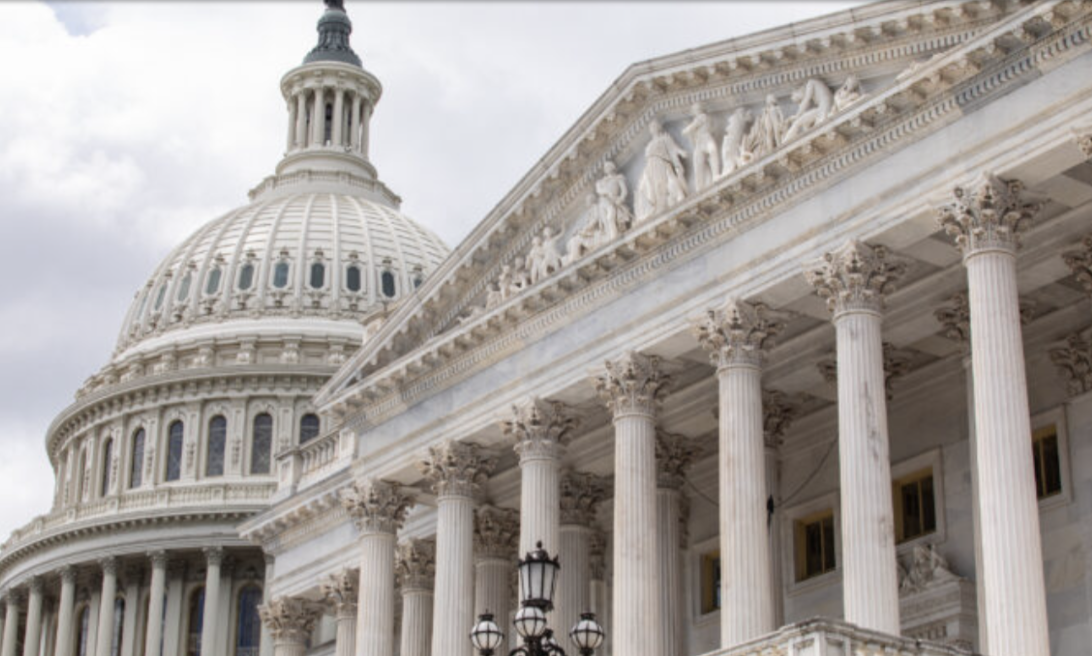BREAKING: Senate Passes Dems Health and Climate Bill
On August 7, the Senate voted 51–50 to pass the Democrats’ comprehensive heath care and climate bill, with Vice President Kamala Harris providing the deciding vote.
The House will now review the roughly $740 billion deal.
Senate Majority Leader Chuck Schumer (D-NY) said, “It’s been a long, hard, winding path, but at last, at last we have arrived. “The Senate is rewriting the book. The Inflation Reduction Act, in my opinion, will remain one of the key pieces of legislation for the twenty-first century.
Beginning on August 6 and continuing into the afternoon of August 7, senators voted nonstop for 24 hours straight. A total of thirty-two Republican amendments to the law were rejected by Democrats.
A 15 percent corporate minimum tax that was opposed by private equity firms and other businesses caused problems for the bill at noon, forcing last-minute amendments.
According to Schumer, “it will address tax loopholes and it will lower the deficit.” “It will benefit every citizen in this nation and significantly improve America.”
According to a U.S. advocacy group called Americans for Tax Reform (ATR), the proposal will result in higher taxes for thousands of mid-sized small businesses nationwide.
According to John Kartch, an ATR spokesman, “Any business that has [private equity] in its capital structure is now considered a subsidiary of that firm and is therefore liable to 15% book tax.”
The group said in a statement that, as stated, the clause “now looks restructured to identify any company having private equity in its capital structure to be regarded a subsidiary of that private equity firm for purposes of the tax.” This indicates that the proposed 15 percent tax on book income would now apply to these businesses. With the inclusion of small and medium businesses that need capital investments to expand their operations, this provision would significantly broaden the scope of the book minimum tax.
Concerns concerning private equity firms and other businesses’ complaints about the corporate minimum tax had the potential to impede the development.
Republicans argued that the proposal would damage an economy that authorities are working so hard to prevent from entering a recession. They said that the bill’s company taxes will hinder job growth and drive up prices, making it more difficult for individuals to deal with the worst inflation the country has seen since the 1980s.
Senate Minority Leader Mitch McConnell (R-Ky.) remarked on the floor, “Democrats have already plundered American families once through inflation, and their remedy is to loot American families a second time.”
According to the Kentucky Republican, the legislation’s spending and tax hikes would result in job losses and little effects on inflation and climate change.
The Senate started its infamous “vote-a-rama,” which comes before the final passage in the Senate’s budget reconciliation process, late on August 6th. Harris acted as a tiebreaker on many amendments in the 50-50 Senate, and Democrats utilized the procedure to approve the bill along party lines in order to avoid the 60-vote filibuster.
Sen. Joe Manchin (D-W.Va.) revealed he reached an agreement with Schumer about a week before the bill was introduced, reportedly in an effort to improve Democrats’ and Biden’s chances in the 2022 midterm elections following months of dismal polling. Manchin rejected Biden’s initial climate and social policy because he believed it would be too expensive and lead to inflation, which caused it to collapse.
“The Inflation Reduction Act is the result of years of bipartisan discussions regarding the most effective measures to increase domestic energy production, reduce healthcare and energy expenses, and reduce our debt. Without increasing taxes, the IRA accomplishes this,” Manchin stated on Twitter.
The West Virginia Democrat declared he would reject GOP amendments about the same time.
“Despite this, my [Republican] friends have stated unequivocally that they are utterly reluctant to support this law at any cost. That wouldn’t change with any of their amendments, Manchin added.
Sen. Bernie Sanders (I-VT) also proposed amendments to increase the law’s health benefits, but those proposals were rejected. The majority of votes were coerced by Republicans, and many of them were intended to make Democrats appear weak on matters like border security between the United States and Mexico, the price of gas and other energy sources, and like bullies for seeking to tighten IRS tax enforcement.
Sanders claimed late on August 6 that the bill won’t lower inflation and that its climate-related measures don’t go far enough.
He spoke from the Senate floor, saying, “I want to take a moment to say a few words on the so-called Inflation Reduction Act’ that we are debating this evening. “And by the way, I say so-called because the [Congressional Budget Office] and other economic institutions that have studied this bill claim that it will actually have little effect on inflation.
Source: republicandaily.com










